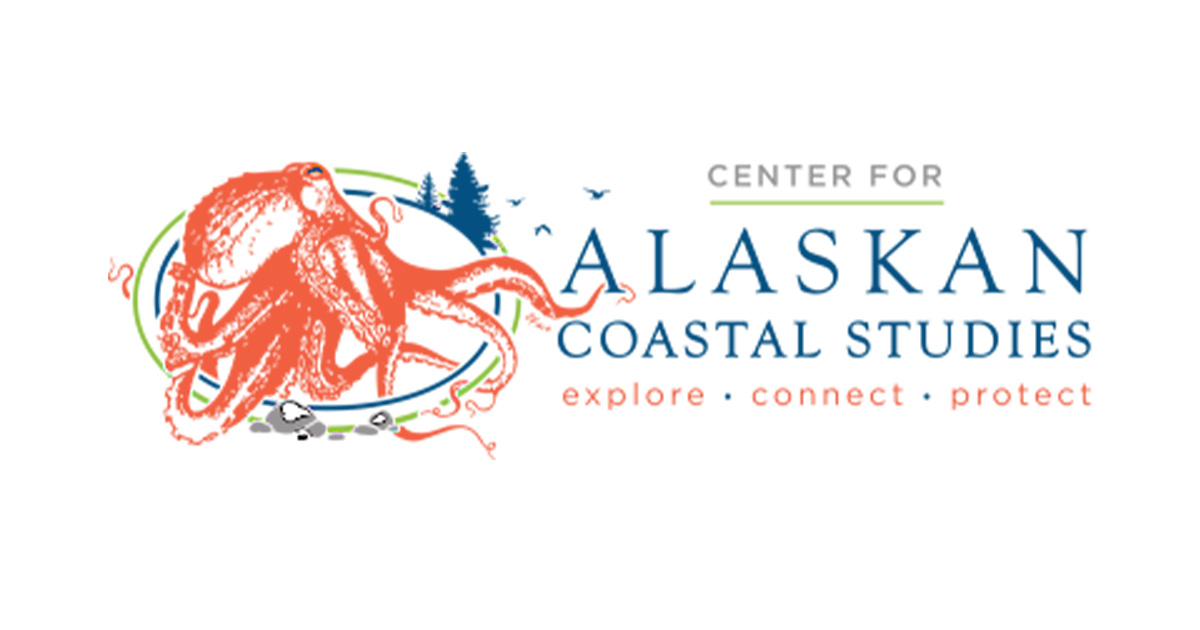The CORaL Network Marine Educator will work with youth, young adults, and community members from Prince William Sound, Cook Inlet, Kachemak Bay, the Kodiak Archipelago and the Alaska Peninsula by facilitating immersive, place-based learning opportunities both in Kachemak Bay and throughout remote communities of southcentral Alaska.
Training & Mentorship
- Mentorship from the CORaL Network Intern Coordinator and Coastal Studies Program Director.
- Participation in the Collective Alaska Native Perspectives learning series, facilitated by Chugach Regional Resources Commission
- While assisting with the Community Coastal Experience, the CORaL Network Marine Educator will have the opportunity to learn alongside participants about marine ecology, ecosystem restoration, history and cultural practices, and archaeology in the region.
- Other opportunities throughout the year for paid professional development.
Core Duties
- Assist the CORaL Network Intern Coordinator as well as local partners in planning and leading activities for the Community Coastal Experience. Facilitate leadership and reflection activities, mentor participants, and provide logistic support such as van driving, grocery shopping, etc.
- Create curriculum and implement day and evening activities for Marine Science Expedition, arrange for guest speakers, coordinate boat transportation, plan and prepare for meals, chaperone participants, organize and prepare supplies, document the camp experience through photos/video, and submit written feedback on the experience.
- Communicate via email or phone with participants and parents/guardians before the camp to help them prepare for the experience.
- Develop and ensure a safe, fun, and positive environment for all youth participants. Work cooperatively with other CACS staff and volunteers to provide high-quality experiences for participants and proactively and positively address behavior challenges as they emerge. Administer basic first aid and comfort homesick or otherwise upset participants.
- Lead coastal ecology environmental education activities such as tide pooling, forest ecology hikes, plankton tow, microscope lab, water quality monitoring, geology, Alaska Native history & culture, and climate change investigations for Onboard Oceanography, Alaska Coastal Ecology, and other programs for local youth groups.
- Develop activities, materials, and curriculum to integrate cultural and scientific knowledge from the CORaL Network into Coastal Studies programming.
- Regularly attend CORaL network planning and coordination meetings and Alaska Native Relations Training courses offered by CRRC
- Communicate and Coordinate with Chugachmiut natural resource and local culture coordinators in each of the seven communities of the Chugach region
- Work with CORaL partners to develop a kiosk and video library highlighting EVOS research
- Lead educational outreach programs in remote communities
- Participate in shadowing programs of coworkers and providing peer-to-peer feedback.
- Provide photos for social media and advertising, conduct participant evaluations of programs, and complete basic office tasks such as program data entry
Qualifications
- Creativity, curiosity, compassion, and enthusiasm.
- Experience or demonstrated desire to work with youth and young adults in outdoor settings. Commitment to facilitating experiential, place-based, culturally sustaining, and inclusive learning experiences for youth, families, and young adults.
- Ability to work in a highly collaborative work environment and live and work in semi-remote locations with visiting groups and other naturalists. Comfort with camping with youth and adults in wilderness and front country settings.
- Willingness to learn on the job and to adjust and adapt readily to changing circumstances (such as weather, boat scheduling, group needs, etc.)
- Knowledge of or strong interest in learning more about basic intertidal, marine, and forest ecology, archaeology, ecosystem restoration, mariculture, and local cultural communities.
- Strong communication skills, with the ability to provide clear, concise directions, communicate complex science concepts, and facilitate reflective discussion.
- Commitment to justice, equity, diversity and inclusion in environmental education and willingness to understand race, class, gender, and other equity issues to create more inclusive camp programs, and dedication to our vision of healthy ecosystems, engaged and connected communities, and inspired environmental stewards.
- Ability to receive and give direction and feedback on a variety of topics.
- Demonstrated good judgment and experience with risk management in challenging settings, including first aid and CPR certification (with preference for Wilderness First Aid or Wilderness First Responder certification).
- Experience guiding sea kayaking trips for teens or adults, or willingness to participate in training opportunities related to sea kayak safety and guiding.
Salary
$34,496 annual salary (no housing provided); if housing is provided then $29,096 annual salary + benefits.





